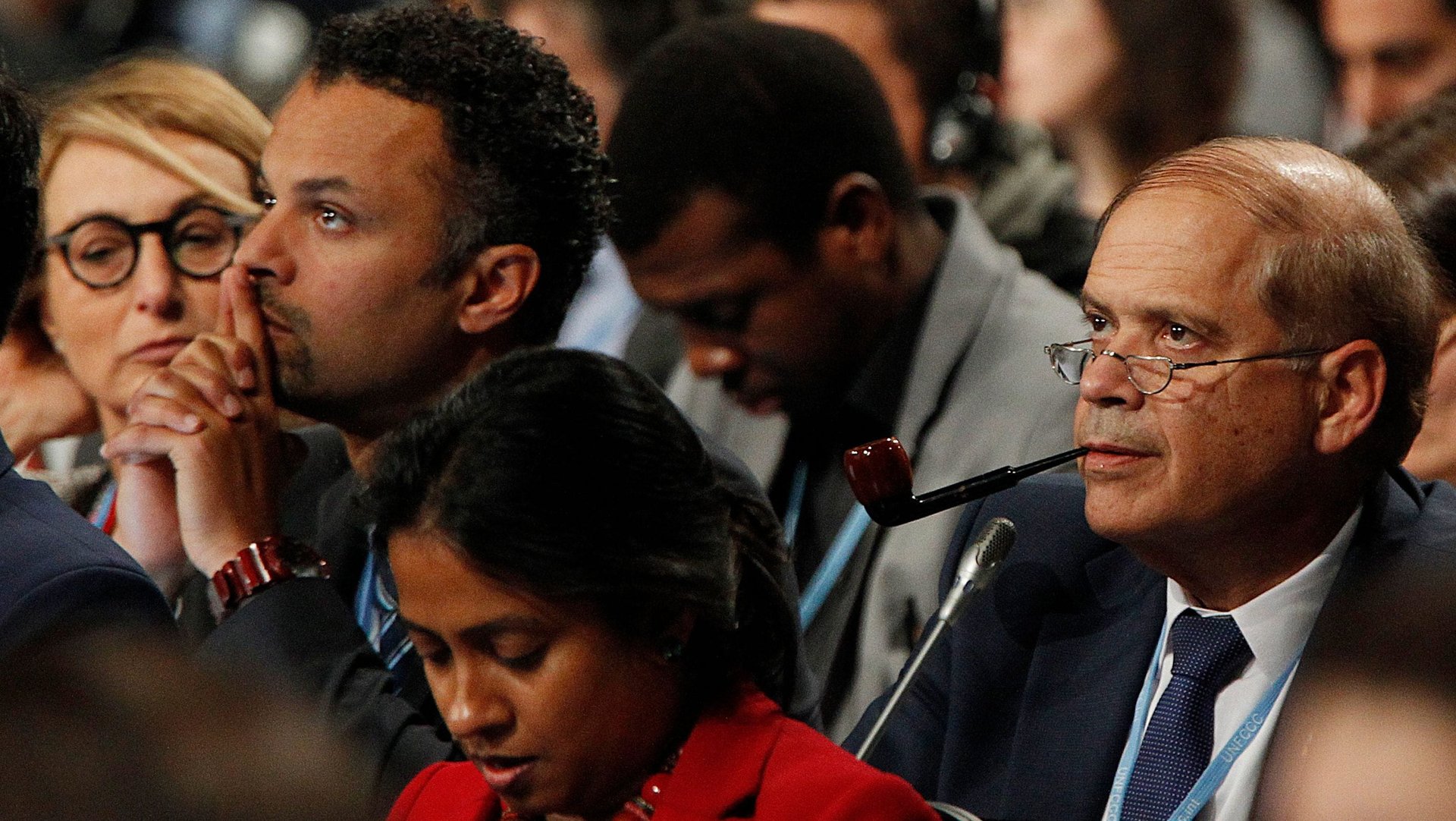There’s now a rulebook for everyone in the Paris climate agreement to follow, the US included
Nearly 200 countries have agreed to rules for how they’ll adhere to the Paris climate agreement. The text of a new “rulebook” was finalized Saturday (Dec. 15) at the 24th Conference of Parties in Katowice, Poland, which went into overtime as countries haggled over wording.


Nearly 200 countries have agreed to rules for how they’ll adhere to the Paris climate agreement. The text of a new “rulebook” was finalized Saturday (Dec. 15) at the 24th Conference of Parties in Katowice, Poland, which went into overtime as countries haggled over wording.
The result is a set of rules that defines how nations will record their emissions and their progress toward climate goals, and sets out mechanisms for countries to ask for help if they fall behind. It also calls for countries to increase the ambition of their pledges over time.
Questions remain as to whether that outcome is anywhere near enough, given the dire environmental situation. Even with the pledges already made, the world is on track for between 3°C and 4°C of warming by the end of the century. That is far above the 1.5°C of warming that a recent UN report warned would be devastating for the planet, triggering mass-scale food shortages, migration crises, and ecosystem death. The global average temperature has already warmed about 1°C toward that threshold.
“In the climate emergency we’re in, slow success is no success,” Durwood Zaelke, president of the Institute for Governance and Sustainable Development, told the Washington Post.
The US—which Trump has said will exit the Paris accord—can’t formally pull out of it until 2020. So the US will be adhering to the playbook, at least until then.
The conference, which ran a day over schedule when delegates needed more time to reach an agreement, was not without antagonisms. The US, Russia, Saudi Arabia, and Kuwait managed to water down a resolution acknowledging the recent report by the Intergovernmental Panel on Climate Change that found a temperature rise of 1.5°C would be disastrous for life on Earth. Brazil held up finalization of the rulebook by opposing changes to carbon trading rules—those have now been pushed to the next COP, which will take place in Chile in 2019.
Meanwhile the US hosted a pro-coal event during the proceedings; Australia was the only other country to show up for it.
But despite the outward-facing opposition, negotiators from the US “worked constructively behind the scenes with other parties,” the New York Times noted. Reportedly they pushed for strong rules that would require all countries to account for their own emissions and share that data with other parties.
“The US role here is somewhat schizophrenic—pushing coal and dissing science on the one hand, but also working hard in the room for strong transparency rules,” Elliot Diringer, executive vice president of the nonprofit Center for Climate and Energy Solutions, told the Washington Post.
Editor’s note: An earlier version of this story misspelled Katowice.